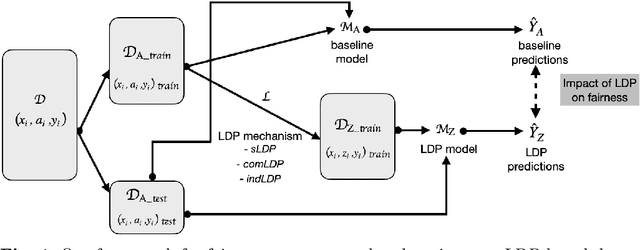On the Impact of Multi-dimensional Local Differential Privacy on Fairness
Paper and Code
Dec 08, 2023



Automated decision systems are increasingly used to make consequential decisions in people's lives. Due to the sensitivity of the manipulated data as well as the resulting decisions, several ethical concerns need to be addressed for the appropriate use of such technologies, in particular, fairness and privacy. Unlike previous work, which focused on centralized differential privacy (DP) or local DP (LDP) for a single sensitive attribute, in this paper, we examine the impact of LDP in the presence of several sensitive attributes (i.e., multi-dimensional data) on fairness. Detailed empirical analysis on synthetic and benchmark datasets revealed very relevant observations. In particular, (1) multi-dimensional LDP is an efficient approach to reduce disparity, (2) the multi-dimensional approach of LDP (independent vs. combined) matters only at low privacy guarantees, and (3) the outcome Y distribution has an important effect on which group is more sensitive to the obfuscation. Last, we summarize our findings in the form of recommendations to guide practitioners in adopting effective privacy-preserving practices while maintaining fairness and utility in ML applications.
 Add to Chrome
Add to Chrome Add to Firefox
Add to Firefox Add to Edge
Add to Edge